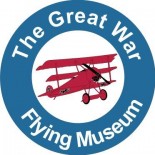The Great War Flying Museum
To honour the pilots who served with gallantry and distinction during the Great War of 1914 – 1918.
William Avery Bishop
 Country: Canada
Country: Canada
Born: February 8, 1894
Place of Birth: Owen Sound, Ontario
Deceased: September 11, 1956
Rank: Lieutenant Colonel
Service: Royal Flying Corps
Units: 21, 37, 60 and 85
Victories: 72
Bishop attended the Royal Military College before joining the 8th Canadian Mounted Rifles at the beginning of the war. After serving overseas with the Canadian Expeditionary Force, he transferred to the Royal Flying Corps in December 1915 and received his pilot’s certificate in 1917. Flying the Nieuport 17 and S.E.5a, ” The Lone Hawk” was considered by some to be a mediocre pilot, but his extraordinary eyesight and consistent practice earned him a reputation as a crack shot. As the commanding officer of the ” Flying Foxes,” he was awarded the Distinguished Flying Cross (DFC) after scoring 25 victories in just twelve days. On the morning of 2 June 1917, his single-handed attack against a German aerodrome on the Arras front earned him the Victoria Cross, making Bishop the first Canadian flyer to receive this honor. Before the war ended, he found time to write ” Winged Warfare,” an autobiographical account of his exploits in the air over France.Because Bishop flew many of his patrols alone, most of his victories were never witnessed. After years of controversy, a television broadcast entitled ” The Kid Who Couldn’t Miss” led to an inquiry by the Canadian government in 1985. In conclusion, the Standing Senate Committee on Social Affairs, Science and Technology discredited the film, finding it to be an unfair and inaccurate portrayal of Bishop.
Bishop was the brother-in-law of Canadian ace Henry Burden.

You must be logged in to post a comment.